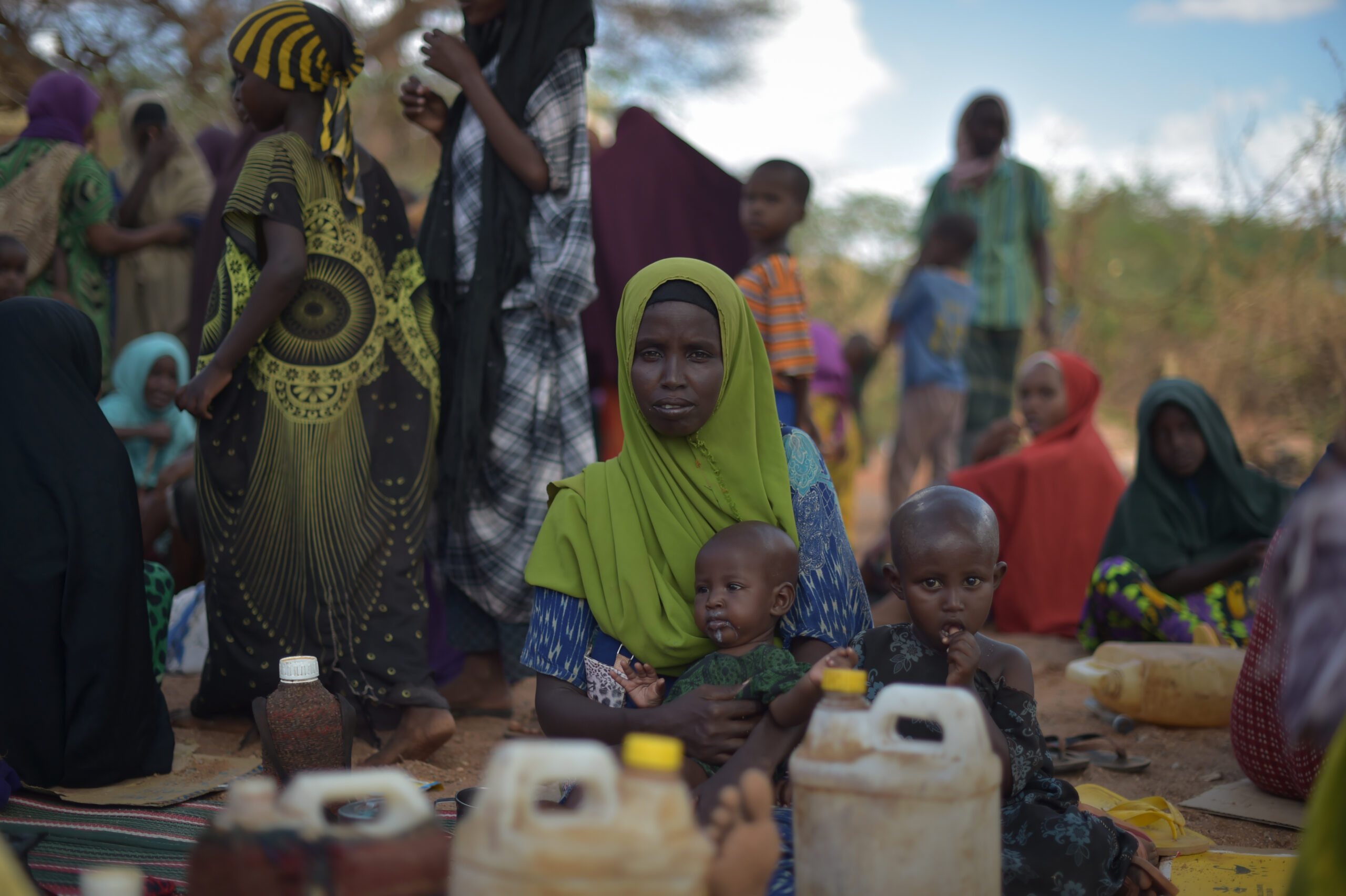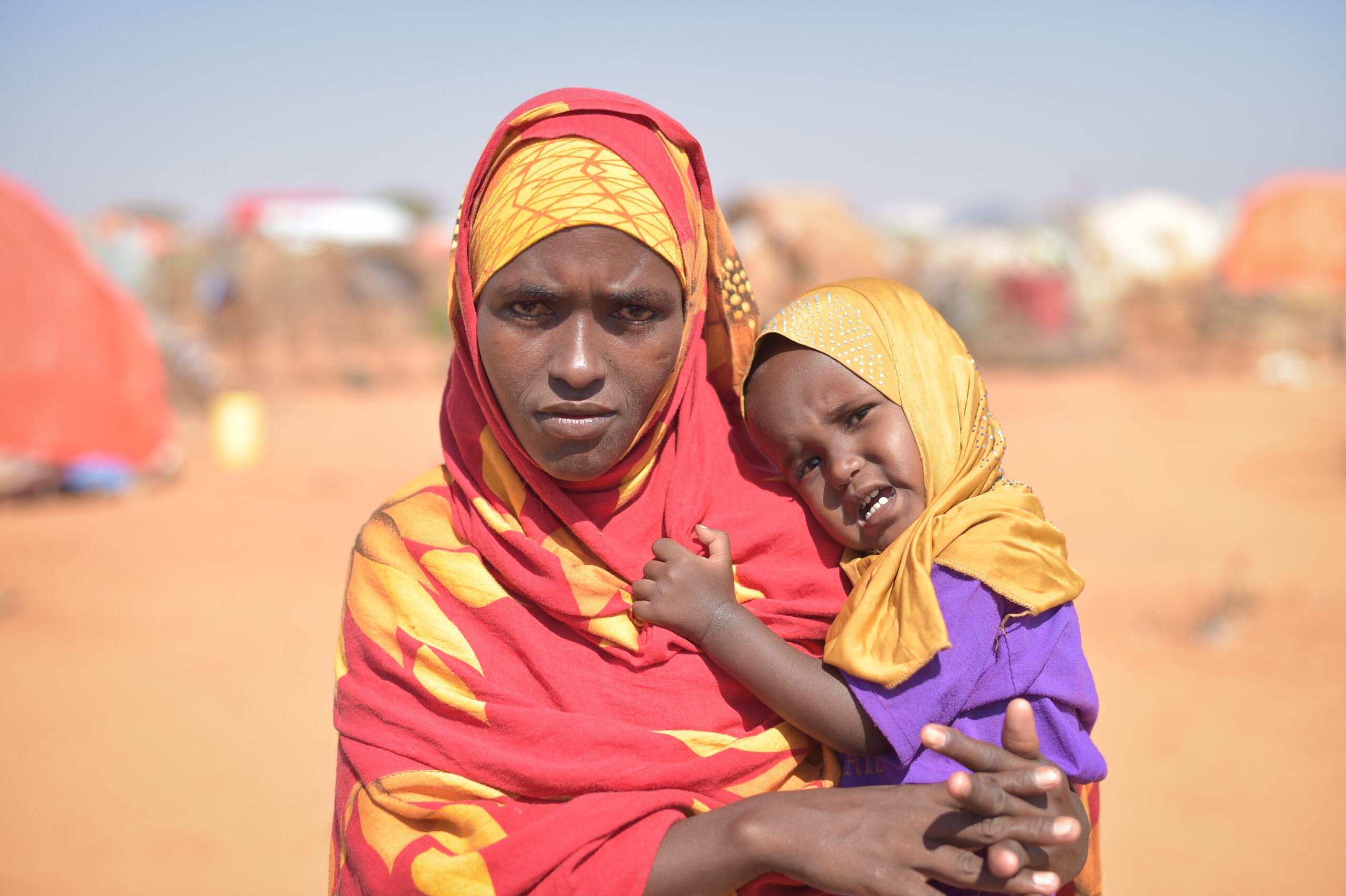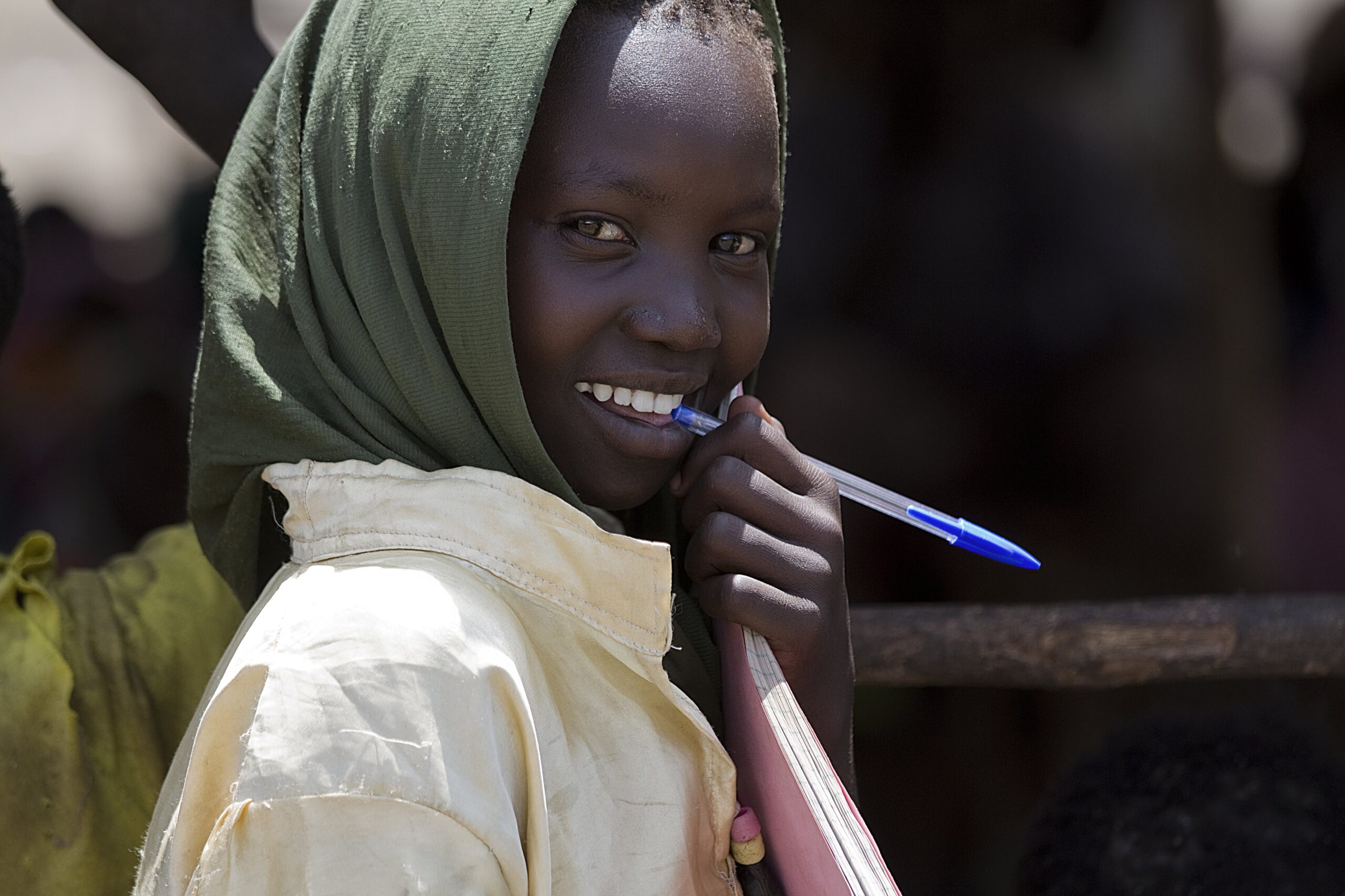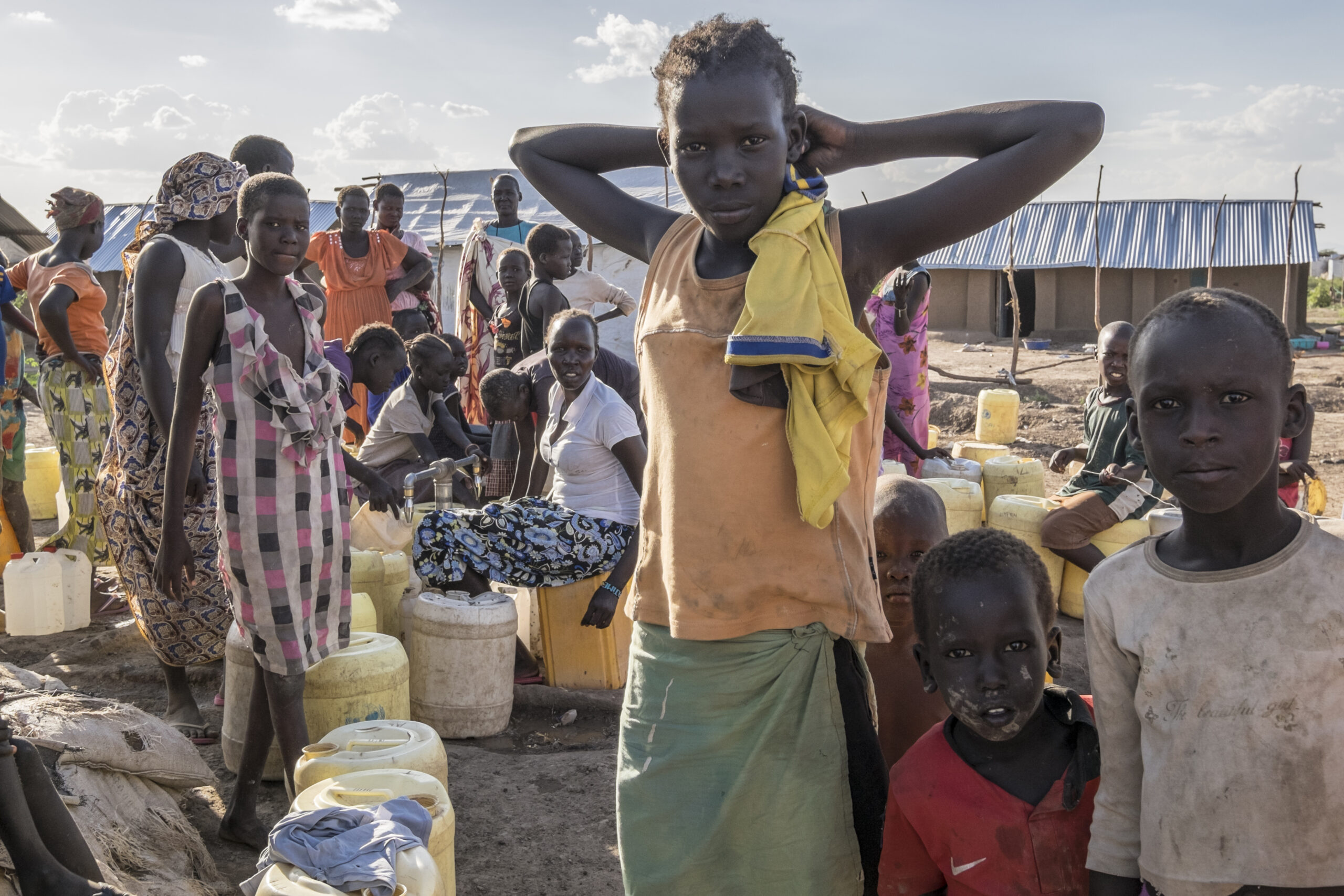The Ministry of Planning, Investment, and Economic Development (MoPIED) in cooperation with ReDSS hosted a pivotal Solutions Pathways Workshop and Durable Solutions Technical Working Group (DS-TWG) Meeting in Mogadishu, Somalia, on the 6th and 7th of March, 2024 at the Palm Hotel in Mogadishu. Under the unified banner “Supporting 1 million IDPs in Somalia to Progress from Displacement Vulnerabilities into Solutions Pathways,” these events aimed to identify feasible solution pathways tailored to the needs of displacement-affected communities based on their locations and available resources, aligning all efforts with Somalia’s existing national durable solutions policy.
This brief presents the highlights and way forward for the two workshops and the next steps.
The Solutions Pathways Workshop: Consensus Building for Sustainable Solutions
At the core of the Solutions Pathways Workshop was the objective of building consensus around the most viable solutions for displacement-affected communities. Recognizing the diversity of needs and resources across different regions, six potential pathways emerged:
- Access to basic services
- Access to employment and livelihoods
- Access to housing, land, and property (HLP) and documentation
- Building resilience to prevent new displacement
- Government leadership
- Data for solutions
Solutions Pathway Workshop Takeaways: Collaborative Action and Strategic Planning
The workshop underscored the importance of collaborative, multi-sectoral efforts to effectively address the priorities of displacement-affected communities. Given the constraints of limited resources and high displacement rates, participants recommended strategically prioritizing two or three pathways in tandem, establishing targets per location, estimating costs, and setting timeframes. This focused approach would enable a more impactful investment of resources.
Moreover, the workshop emphasized the need for comprehensive and detailed action plans developed by federal, state, and national institutions, incorporating region and state-level specific needs. These plans would serve as valuable references for donors when funding opportunities arise, ensuring long-term, sustainable solutions backed by long-term funding commitments.
Recognizing the importance of community engagement, participants called for consultative meetings involving all Federal Member States (FMS) to produce detailed work plans for the identified pathways. These meetings would actively seek input from displacement-affected community forums, ensuring their perspectives and needs are integrated into the national durable solutions framework.
Poverty Reduction and Durable Solutions Department of the Ministry of Planning, Investment & Economic Development has today organised a “Solutions Pathways Workshop” today to facilitate the identification of viable pathways for removing 1 million IDPs from displacement by 2025. pic.twitter.com/0NgSx2HoAu
— MoPIED (@MoPIED_Somalia) March 6, 2024
The deliberations were enriched by presentations from the FMS, detailing their respective priorities, target locations, and required actions across the identified pathways, spanning access to basic services, employment and livelihoods, documentation and housing, land and property rights, resilience-building, and government leadership.
The Durable Solutions Technical Working Group (DS-TWG) Meeting: Validation, Alignment, and Data Management
During the subsequent DS-TWG meeting held on 7th March 2024 at Palm Hotel, Mogadishu, MoPIED and the Regional Durable Solutions Secretariat (ReDSS) presented the FMS’ solution pathway priorities for validation by participants. All participants endorsed the presented pathways, underscoring their relevance and importance, while suggesting verifying the accuracy of IDP figures and cost estimates before finalization.
Recognizing the need for community engagement, participants recommended that the government convene physical meetings with local authorities and displacement-affected community forums. These meetings would provide an opportunity to receive invaluable input and feedback, ensuring the priorities align with on-the-ground realities.
To streamline data management efforts, the meeting advised against establishing a standalone data working group. Instead, it proposed strengthening the capacity of durable solutions unit leads and developing standardized data collection tools for all durable solutions actors to submit their project data efficiently.
.@MoPIED_Somalia's Poverty Reduction & Durable Solutions hosted National Durable Solutions Technical Working Group Meeting. Discussions centred on current status, progress, accelerating projects aligned with National Durable Solutions Strategy to find lasting solutions for IDP’s. pic.twitter.com/FTpBOrWBF8
— MoPIED (@MoPIED_Somalia) March 7, 2024
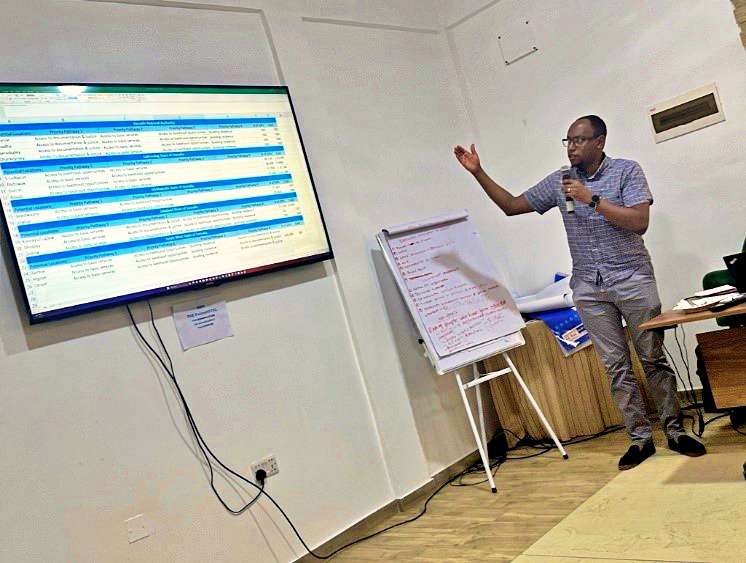
Andrew Maina, ReDSS Solutions Coordinator, presents the FMS priorities from the Solutions Pathway forum at the DSTWG.
The DS-TWG meeting also served as a platform for FMS focal points to share their achievements in implementing durable solutions projects during the previous quarter, outlining how their active projects contributed to the existing national durable solutions strategy, fostering alignment and synergy among various initiatives.
Participants emphasized the importance of harmonizing shelter typology and tools and promoting community-led initiatives among durable solutions actors, ensuring consistency and empowering communities to drive their own solutions. Notably, the DS-TWG will continue operating under government leadership, as requested by the FMS representatives, underscoring the government’s commitment to taking ownership and providing strategic guidance for durable solutions efforts in Somalia.
The Way Forward: What Next?
Following the workshops, all FMS committed to finalizing their action plans with specific timeframes in cooperation with MoPIED. This step is crucial for translating the identified pathways into concrete, actionable plans with clear targets and deadlines. Customized DS-TWG presentation slides, tied to agreed actions and targets, will be developed and shared with all durable solutions focal persons, ensuring transparency, accountability, and alignment among stakeholders, and creating a shared understanding of the way forward.
An urgent need was identified to develop monitoring tools and an online database to facilitate efficient data collection, review, and reporting across project sites, districts, states, and the national level. This centralized system will enhance coordination, informed decision-making, and the tracking of progress toward achieving durable solutions. New staff members in the FMS’ durable solutions units highlighted the need for training on durable solutions principles and practices. ReDSS committed to providing this training through MoPIED, promoting a skilled and knowledgeable workforce capable of driving sustainable change. Recognizing the diverse experiences and best practices across the different FMS, participants called for a knowledge-sharing learning event. This platform would enable states to share their successes, challenges, and lessons learned, facilitating cross-pollination of ideas and fostering capacity-building at all levels.
Implementing the new solution pathways is a complex undertaking, and government institutions require technical support to navigate this process effectively. The UN Resident Coordinator’s Office (RCO) and ReDSS were urged to develop a plan to provide this critical support, ensuring that government agencies have the necessary expertise and resources to drive sustainable change.
ReDSS remains committed to empowering aid organizations and to capitalize on the momentum from the Solutions Pathways Workshop and DS-TWG Meeting. Building on the foundation laid by these workshops, ReDSS remains a steadfast supporter, paving the way for solutions that restore dignity, hope, and opportunity for those affected by displacement.

